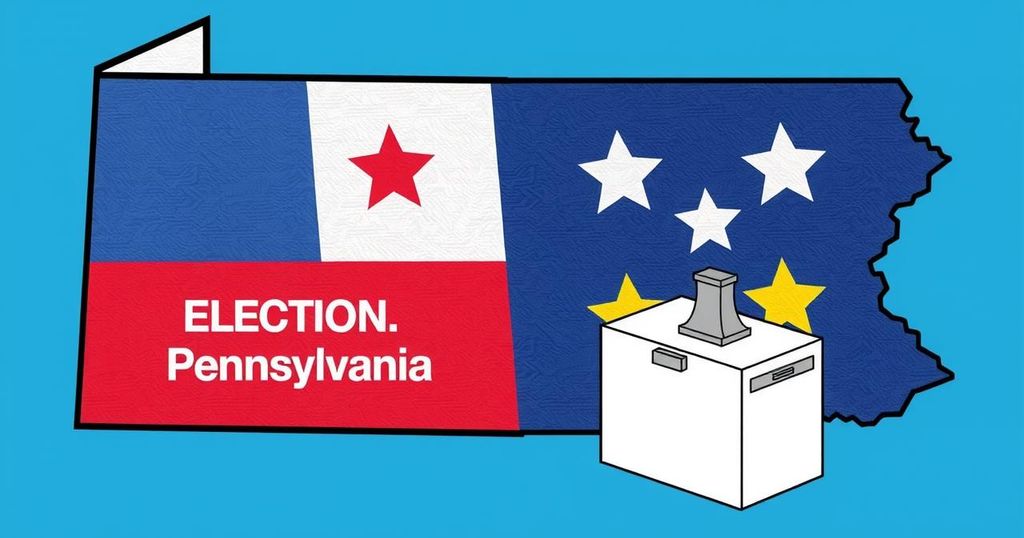Although the 2024 election in Pennsylvania was executed smoothly, Lehigh County election officials, led by Tim Benyo, indicated ongoing systemic issues that need addressing. Despite previous financial aid to improve counting processes, staffing shortages, excessive overtime, and long wait times for voters reflect significant operational challenges. Political gridlock complicates the prospects for reform, further jeopardizing the integrity of future elections.
In Pennsylvania, the 2024 election was conducted with unprecedented efficiency, devoid of significant delays or errors. However, the Lehigh County Chief Clerk of Elections, Tim Benyo, cautioned that underlying issues remain unresolved. For years, officials have advocated for adjustments to the state’s election code, such as extending the timeframe for pre-canvassing mail-in ballots and instituting an earlier voter registration deadline. Additionally, there have been calls for establishing a more comprehensive system for early, in-person voting, but these reforms have been stalled due to political impasses. Benyo emphasized that, despite the success of the recent election, a wave of experienced electoral administrators is leaving the field, leading to greater burdens on remaining staff, particularly when those stepping in may lack sufficient experience.
Significant financial investments have been made, such as allocating millions for counties to upgrade ballot counting machines following delays in the 2020 election. Yet, Benyo remarked that these recommendations are mere temporary fixes to deeper systemic issues. He voiced concerns regarding the sustainability of demanding work schedules that have pushed employees into working excessive overtime. Specifically, during the final two weeks leading up to the election, election office staff frequently clocked up to 80 hours of overtime, creating a strain on personnel resources.
New hurdles have emerged, evidenced by a substantial increase in demand for over-the-counter mail-in ballots, resulting in long wait times for voters. Furthermore, technical slowdowns in the state’s voter database exacerbated the challenges faced by electoral officials, straining their ability to provide timely services. The buildup of stress and frustrations among voters culminated in clashes at polling places as the high influx of applicants necessitated quick responses from election workers.
Looking ahead, Benyo expressed skepticism regarding the likelihood of legislators addressing these electoral challenges effectively. The upcoming General Assembly session is expected to retain the same partisan tensions as before, which have historically hindered meaningful progress on election reforms. Previous attempts to synchronize mail-in ballot processing with voter ID legislation underscore the ongoing political hurdles.
State Representative Michael Schlossberg also highlighted concerns over entrenched partisan positions that could thwart needed reforms, emphasizing a need for compromise. Thus, the infusion of solutions to Pennsylvania’s electoral challenges remains critical, with hopes that lawmakers will engage in fruitful discussions.
In recent years, Pennsylvania has experienced political gridlock that has inhibited necessary updates to its election code. While the 2020 election raised significant concerns over counting accuracy and timely results, subsequent investments aimed at improving counting methods were implemented. However, the state’s electoral infrastructure still grapples with issues, such as unmanageable workloads and inefficient processes that ultimately affect the integrity of elections and voter satisfaction. The ongoing debate over voter ID laws versus mail-in voting further complicates legislative efforts to pass comprehensive reforms, leaving election administrators in a precarious position as they prepare for future elections.
In summary, while Pennsylvania’s recent electoral processes have demonstrated operational success, significant challenges remain unaddressed. The need for legislative reforms addressing pre-canvassing timelines, voter registration deadlines, and early voting practices is critical to ensure the sustainability of electoral administration. The prevalent political divide continues to pose a significant obstacle to achieving consensus on these issues, necessitating ongoing dialogue among lawmakers to foster actionable solutions. The persistence of these challenges underscores the importance of strategic reform in enhancing the effectiveness and reliability of Pennsylvania’s election systems.
Original Source: www.lehighvalleynews.com






